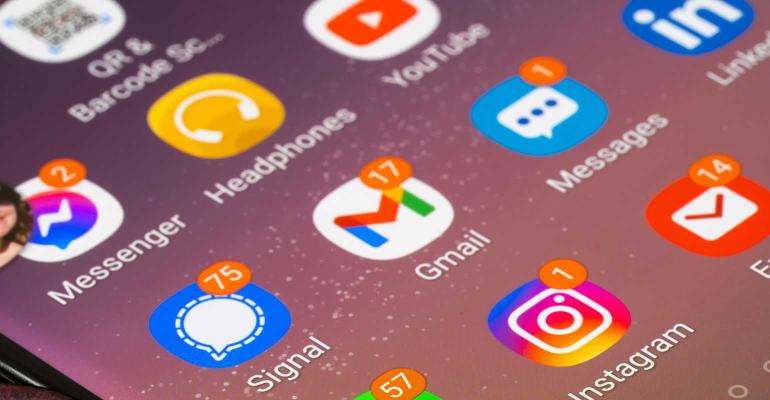In today’s fast-paced and hyper-connected world, distractions seem to be everywhere, hindering our ability to stay focused and be productive. With notifications from apps and devices constantly vying for our attention, it’s no wonder that many of us struggle with a declining attention span. I constantly see headlines touting various ways to be more productive, and a simple Google search for the phrase “Productivity Hacks” returns no less than 30,900,000 results. It’s safe to say that everyone is looking for ways to limit distractions and get more done.
I became acutely aware of my own dwindling focus a few years ago, as I repeatedly swiveled between email notifications on my computer, text messages on my phone and pop-ups from LinkedIn, Twitter, ESPN and other apps. Much of my career success, I felt, was solely attributed to my ability to manage multiple responsibilities and to simply “get stuff done,” yet I was finding myself more and more distracted every day. That led me to the book, Indistractable, by Nir Eyal. The book dives into the reasoning behind our distraction and encourages the reader to “understand our internal triggers (that lead us to procrastinate) and learn to control them.”
Eyal also examines external triggers and our thoughts and beliefs about them. For instance, checking and responding to work emails might seem productive, but if it diverts our attention from completing a presentation that is due tomorrow, it becomes a distraction. “We have conditioned ourselves to respond instantly” making it difficult to focus on what truly matters. “Soon,” he writes, “it feels impossible to do what we have planned because we’re constantly reacting to external triggers instead of attending to what’s in front of us.” Eyal urges the reader to realize “we don’t need to check our email right this second or need to see the latest trending news headline, no matter how much we feel we must.” He concludes, “distractions will always exist; managing them is our responsibility.”
Even if we don’t physically respond to the trigger but simply allow it to distract us ever so briefly, studies have shown that a short pause can be enough to break our concentration and increase the time required to complete the task. The answer, Eyal argues, is to simply turn off notifications to allow our minds to stay focused on the task at hand, leading to improved productivity. By disabling notifications, we regain control over the influx of information, allowing us to prioritize and engage with the information intentionally, at the time we choose, rather than whenever it arrives at our digital doorstep. Several years ago, I turned off email notifications because I was regularly finding myself missing critical information during Zoom calls because an email pop-up in the bottom corner of my screen sent my mind in four or five different directions. Now, I review and respond to emails at the time I deliberately choose, rather than whenever they hit my inbox. Additionally, I have implemented a system where industry newsletters and publications have their designated folder in my inbox. This allows me to intentionally choose when to read industry news, rather than getting distracted by it while attending to more urgent matters.
“Deep work,” popularized by renowned expert Cal Newport, revolves around achieving a state of undisturbed, concentrated focus on mentally challenging tasks. This uninterrupted focus not only enhances the quality of our work but also allows us to tackle intricate problems and unleash our creative capacities. Approaching work in a more mindful way enables us to be more present, which in turn fosters a deeper sense of satisfaction and fulfillment. With the absence of constant interruptions, we can handle the sea of information overload more effectively, carefully selecting the data that truly deserves our attention.
In a world where our attention is constantly being pulled in multiple directions, embracing the power of silence, and intentionally reducing the “noise” becomes an act of empowerment. By making a conscious choice to mute the notifications that vie for our attention, we open ourselves up to a world of enhanced productivity, where the true depths of our capabilities can be explored and harnessed. By reclaiming our attention and embracing intentional disconnection, we pave the path toward a more focused and fulfilling work-life experience.
Matt Sonnen is the Chief Operating Officer at Coldstream Wealth Management, as well as the creator of the digital consulting platform The COO Society, which educates RIA owners and operations professionals on how to build more impactful and profitable enterprises. He is also the host of the popular COO Roundtable podcast.

